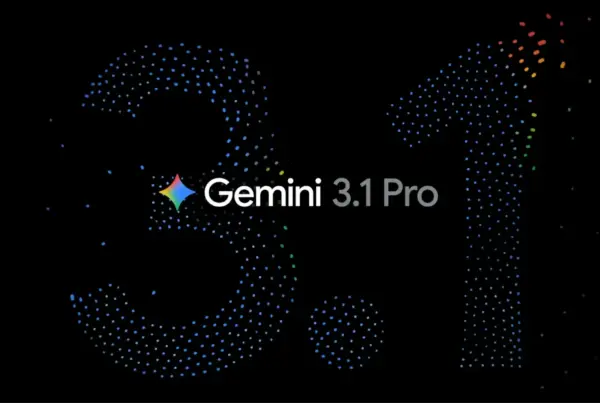Badan Global AI menjadi sorotan utama dalam konferensi kecerdasan buatan di Shanghai setelah Perdana Menteri China, Li Qiang, secara resmi mengusulkan pembentukan lembaga internasional baru yang berfungsi mengkoordinasikan pengembangan dan regulasi AI. Usulan tersebut menandai langkah besar Beijing dalam upaya membentuk tata kelola global atas teknologi yang semakin mempengaruhi ekonomi dan geopolitik dunia.
Li Qiang menegaskan bahwa tanpa kerangka kerja global yang inklusif, AI berpotensi menjadi “permainan eksklusif” yang hanya dikuasai oleh segelintir negara dan perusahaan besar. Ia menyerukan agar semua pihak bekerja sama untuk memastikan bahwa perkembangan teknologi ini dapat memberikan manfaat luas bagi umat manusia, bukan hanya keuntungan bagi pemegang teknologi terbesar.
Tantangan Global di Tengah Persaingan Teknologi
Usulan pembentukan Badan Global AI muncul di tengah memanasnya persaingan antara Amerika Serikat dan China dalam bidang teknologi kecerdasan buatan. Kedua negara saat ini berlomba dalam riset, pengembangan chip, serta pemanfaatan AI di sektor ekonomi dan pertahanan.
Pemerintah AS sebelumnya telah memberlakukan pembatasan ekspor chip canggih ke China, termasuk chip yang digunakan dalam pelatihan model AI besar. Langkah ini disebut bertujuan untuk menjaga keamanan nasional, namun Beijing menilai tindakan tersebut justru menghambat kolaborasi global dan memperlebar kesenjangan teknologi antarnegara.
Persaingan AS–China dalam Arena AI
Persaingan dua kekuatan ekonomi dunia ini tidak hanya berlangsung di bidang ekonomi, tetapi juga di arena ideologis dan kebijakan publik terkait AI. Sementara Washington mendorong pendekatan yang berbasis hak asasi manusia dan keamanan data, Beijing berupaya menekankan pentingnya kedaulatan digital dan kontrol nasional atas data dan algoritma.
Sejumlah analis menilai bahwa usulan Badan Global AI ini bisa menjadi strategi diplomatik baru bagi China untuk memperkuat pengaruhnya di dunia internasional, khususnya di kalangan negara berkembang yang ingin ikut serta dalam revolusi AI namun tidak memiliki infrastruktur teknologi mumpuni.
Potensi Dukungan dari Negara Berkembang
Banyak negara di Asia, Afrika, dan Amerika Latin diprediksi akan menyambut baik inisiatif China ini. Bagi mereka, keberadaan Badan Global AI dapat menjadi forum untuk menyalurkan aspirasi dan mengakses pengetahuan teknologi yang sebelumnya hanya dimonopoli oleh perusahaan besar di Barat.
Selain itu, usulan tersebut sejalan dengan upaya global yang telah dilakukan oleh organisasi seperti Perserikatan Bangsa-Bangsa (PBB), yang sebelumnya mendorong pembentukan “AI Advisory Body” untuk memberikan rekomendasi kebijakan etika dan tata kelola.
Tujuan dan Visi Pembentukan Badan Global AI
Menurut pernyataan resmi yang dirilis oleh pemerintah China, Badan Global AI diharapkan berfungsi sebagai platform koordinasi internasional yang mengatur isu etika, keamanan, dan transparansi dalam pengembangan kecerdasan buatan.
Li Qiang menegaskan bahwa organisasi ini tidak dimaksudkan untuk menggantikan lembaga internasional yang sudah ada, melainkan melengkapi dan memperkuat kerja sama antarnegara.
Mendorong Kolaborasi dan Etika AI
China menilai bahwa AI yang berkembang tanpa pengawasan etika dapat menimbulkan risiko serius, mulai dari diskriminasi algoritmik hingga penyalahgunaan untuk kepentingan militer. Oleh karena itu, Beijing menyerukan standar global yang menyeimbangkan inovasi dan tanggung jawab.
Langkah ini mendapat perhatian luas dari peserta konferensi di Shanghai, termasuk dari perwakilan industri dan akademisi internasional. Beberapa pihak menilai ide tersebut sebagai langkah proaktif yang dapat mendorong dialog multilateral dalam isu-isu sensitif seperti privasi data dan pengawasan teknologi.
Tantangan Implementasi di Tingkat Global
Namun, pembentukan lembaga global baru bukan tanpa hambatan. Banyak negara masih berhati-hati terhadap dominasi politik dalam struktur semacam itu, terlebih jika inisiatifnya dipimpin oleh China. Ada kekhawatiran bahwa standar yang dihasilkan dapat mencerminkan kepentingan tertentu dan mengurangi keseimbangan global dalam kebijakan AI.
Para pengamat juga menyoroti perlunya keterlibatan luas dari sektor swasta dan masyarakat sipil agar lembaga tersebut benar-benar merepresentasikan kepentingan global, bukan hanya kepentingan pemerintah.
Reaksi Dunia Internasional
Reaksi terhadap usulan Badan Global AI beragam. Negara-negara Eropa, yang sebelumnya telah merancang EU AI Act, menyatakan bahwa ide China perlu dikaji lebih lanjut agar tidak tumpang tindih dengan kerangka hukum yang telah berjalan.
Sementara itu, beberapa negara di Asia Tenggara, termasuk Indonesia, menyambut gagasan tersebut dengan hati-hati namun terbuka terhadap potensi kolaborasi. Indonesia sendiri tengah mengembangkan pedoman etika AI nasional melalui Kementerian Komunikasi dan Informatika dan BRIN, yang sejalan dengan prinsip transparansi dan akuntabilitas global.
Dukungan Akademisi dan Industri
Sejumlah pakar teknologi dan akademisi internasional melihat nilai positif dari gagasan ini. Profesor Kai-Fu Lee, tokoh AI asal China, menilai bahwa kolaborasi lintas batas menjadi kunci agar AI berkembang dengan aman dan etis.
Perusahaan besar seperti Huawei dan Baidu juga mendukung ide pembentukan badan global karena menilai hal itu dapat menciptakan kesetaraan dalam regulasi internasional yang selama ini dianggap berat sebelah terhadap perusahaan non-Barat.
Sikap Amerika Serikat dan Sekutunya
Sebaliknya, pejabat di Washington menyatakan skeptisisme terhadap usulan tersebut. Mereka menilai bahwa pembentukan badan baru berisiko digunakan untuk mempromosikan model tata kelola AI yang tidak sesuai dengan nilai demokrasi dan kebebasan berekspresi.
Namun beberapa pihak di AS juga mengakui pentingnya koordinasi global dalam mencegah penyalahgunaan AI, terutama dalam konteks deepfake, keamanan siber, dan disinformasi yang dapat mengancam stabilitas politik dunia.
Dampak Strategis bagi Dunia Teknologi
Jika Badan Global AI benar-benar terbentuk, langkah ini dapat mengubah lanskap regulasi teknologi secara global. Lembaga tersebut berpotensi berperan seperti World Trade Organization (WTO) dalam bidang ekonomi atau International Atomic Energy Agency (IAEA) dalam bidang nuklir, namun dengan fokus pada tata kelola kecerdasan buatan.
Peluang Harmonisasi Regulasi
Adanya badan global dapat mempercepat harmonisasi regulasi lintas negara, sehingga memudahkan kolaborasi riset dan inovasi. Ini juga dapat memberikan kepastian hukum bagi perusahaan rintisan (startup) AI yang selama ini menghadapi perbedaan aturan di tiap wilayah.
Selain itu, transparansi dalam pengawasan algoritma bisa meningkat, sehingga kepercayaan publik terhadap sistem berbasis AI semakin kuat. Hal ini penting di tengah meningkatnya kekhawatiran terhadap bias algoritmik dan penyalahgunaan data pribadi.
Risiko Politisasi dan Ketimpangan Kekuasaan
Meski demikian, sebagian analis memperingatkan bahwa badan seperti ini bisa menjadi ajang tarik-menarik kepentingan antara negara besar. Tanpa prinsip transparansi dan independensi, organisasi tersebut bisa kehilangan legitimasi di mata publik.
Isu representasi juga menjadi tantangan penting: negara berkembang harus memiliki suara yang seimbang agar tidak hanya menjadi “penonton” dalam pembentukan kebijakan global AI.
Pada akhirnya, usulan Badan Global AI dari China mencerminkan ambisi negara itu untuk memainkan peran utama dalam membentuk masa depan teknologi dunia. Apakah inisiatif ini akan diterima sebagai solusi kolaboratif atau dipandang sebagai langkah strategis Beijing memperluas pengaruhnya, masih akan ditentukan oleh dinamika diplomatik di tahun-tahun mendatang.
Untuk pembaca yang tertarik dengan isu serupa, simak juga laporan Insimen tentang kebijakan AI di Eropa dan upaya Amerika Serikat memperkuat pengawasan algoritma di sektor publik.
Discover more from Insimen
Subscribe to get the latest posts sent to your email.










































